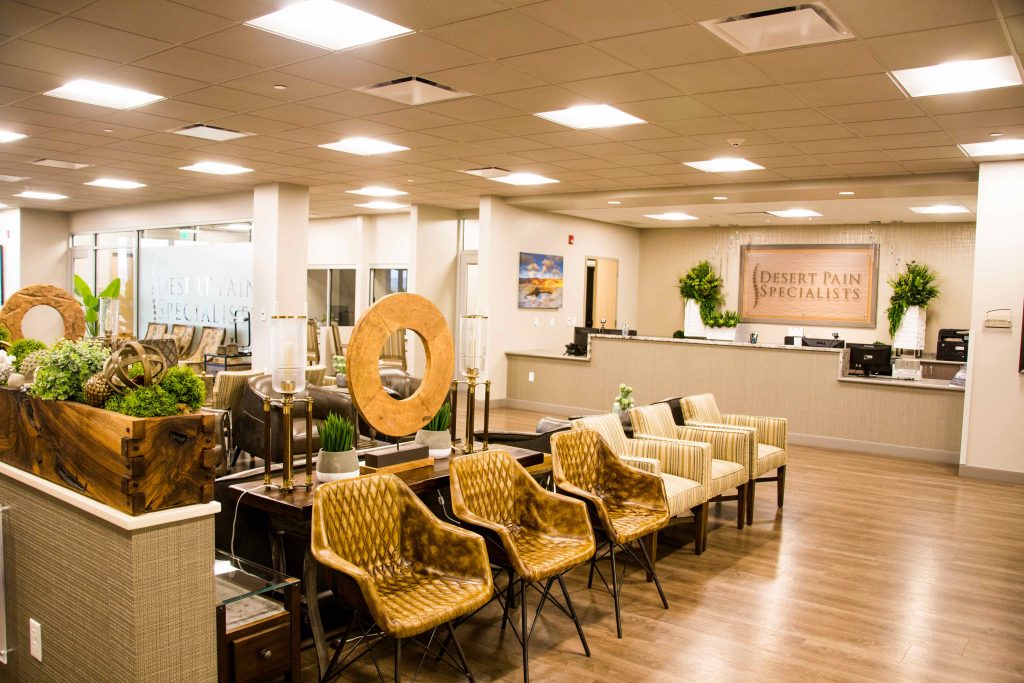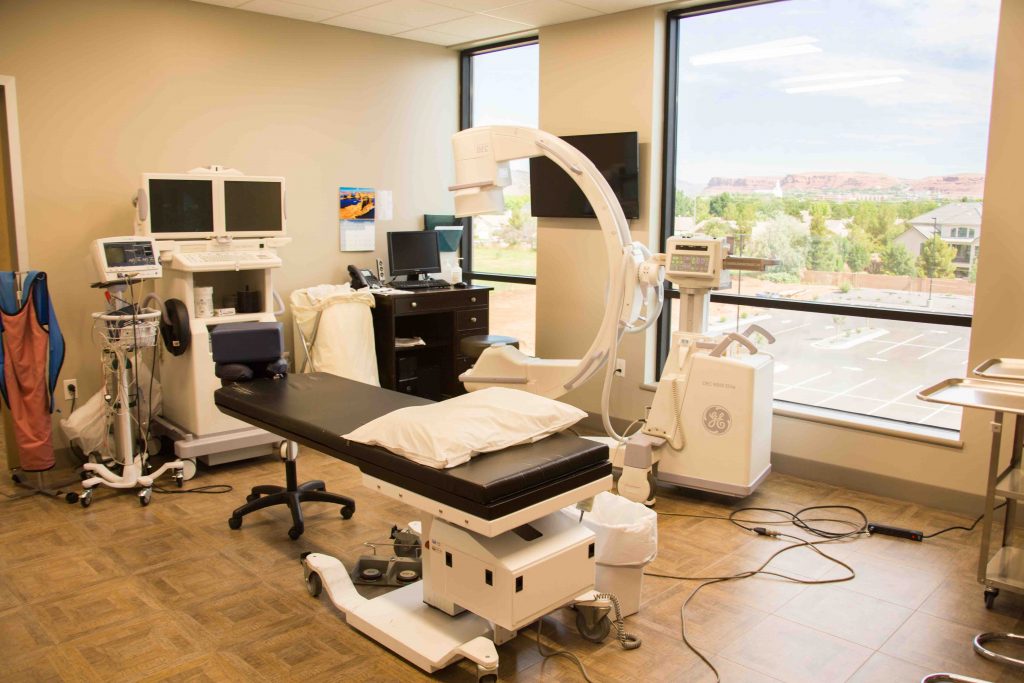
CONTRIBUTED CONTENT — When it comes to having a medical procedure done, even if it’s a minor procedure, there are a lot of emotions involved. Many of those feelings stem from not knowing exactly what’s going to happen before, during and after the treatment.

At Desert Pain Specialists, doctors, nurses and staff work diligently to put their patients at ease by helping them navigate the pre- and post-procedure process with clarity, dignity and the utmost care.
Charo Shamo, a registered nurse at Desert Pain, said it’s extremely important to her to make sure each patient that comes in for a procedure is treated as if they were family.
“We don’t just pre-op them and send them on their way,” she said. “We get to know them. We ask them, ‘How’s your day?’ ‘How’s your life?’ ‘How’s your family?'”
It’s that personal touch that CEO Chase Morrison said makes Desert Pain so unique and builds a relationship of trust that can dispel fear and nervousness surrounding a patient’s treatment.
“Our patients love our nurses,” he added. “Our patients come here knowing that there’s trust.”

Morrison said patients know that the nurses will watch over them “as if they were their own mom or dad or grandparents.”
This experience begins before the patient ever goes back to a procedure room. To start, Shamo said, they are brought to a pre-op area where they will be able to relax in a reclining chair in a space that feels less clinical and more comfortable.
The nurse will go over the procedure, take the patient’s vitals, talk over any concerns and prepare them for the operation. If the patient has not been able to meet the doctor yet, the physician will come to the pre-op area and talk with the patient, as well as double-check the procedure order to make sure everything is correct.
Morrison stressed that the doctor is always involved in the patient’s care before, during and after the procedure.
When everyone feels ready to begin, the patient is taken to one of two suites equipped with state-of-the-art medical equipment and imaging for procedures such as spinal and joint injections, radio frequency ablation, lumbar sympathetic block or spinal cord stimulator placement.
In these suites, the patient’s vitals and imaging are continuously monitored. Sedation, pain medication and numbing anesthesia are often used to help with pain as well as relaxing the patient, Shamo said.
“The doctor does not start the procedure until you are relaxed,” she said, adding that doctors and nurses will talk with the patient throughout the procedure so they always know what’s going on.

Following the procedure, the patient will be transported from the procedure suite via a wheelchair for safety, and they will go over and be given discharge instructions and released into the care of their caregiver or the person driving them home.
For patients who desire to drive themselves home, Shamo said a nurse will stand with the patient to make sure they’re strong enough before they leave.
“Then, just take it easy,” she added. “After a day or two, ease into your activity as tolerated.”
After a week or two, patients will usually be seen for a follow-up appointment to be sure the procedure worked well and see how they’re feeling.
A list of pre- and post-procedural care can be found online; however, perhaps the most important aspect to any part of the process is that patients know they can call Desert Pain with any concerns or issues. Shamo said they’re always willing to answer questions and make the patient feel more comfortable.
“Always,” she said. “Call us. We’re happy and willing to talk to anybody.”
Desert Pain is Southern Utah’s premier interventional pain management team. The doctors and the entire staff are dedicated to helping patients find relief from their pain. Their state-of-the-art facility in St. George allows them to offer unmatched quality of care for their patients.
• S P O N S O R E D C O N T E N T •
Resources
- Desert Pain Specialists | Telephone: 435-216-7000 | Email: [email protected] | Website.
- Locations:
- St. George: 617 E. Riverside Drive, Suite 301.
- Hurricane: 48 S. 2500 West, Suite 110.
- Cedar City: 1760 N. Main St.
- Beaver: 68 N. Main St.
- Panguitch: 200 N. 400 East.
- Kanab: 460 E. 300 South, Suite 4.
- Mesquite, Nevada: 340 Falcon Ridge Parkway, Suite 600.
Copyright St. George News, SaintGeorgeUtah.com LLC, 2021, all rights reserved.